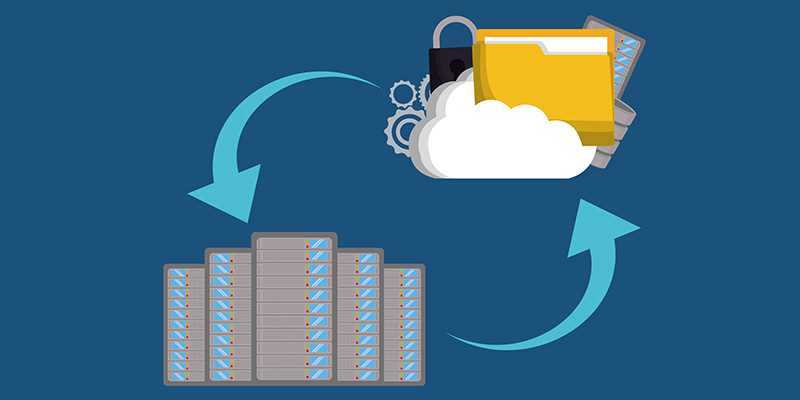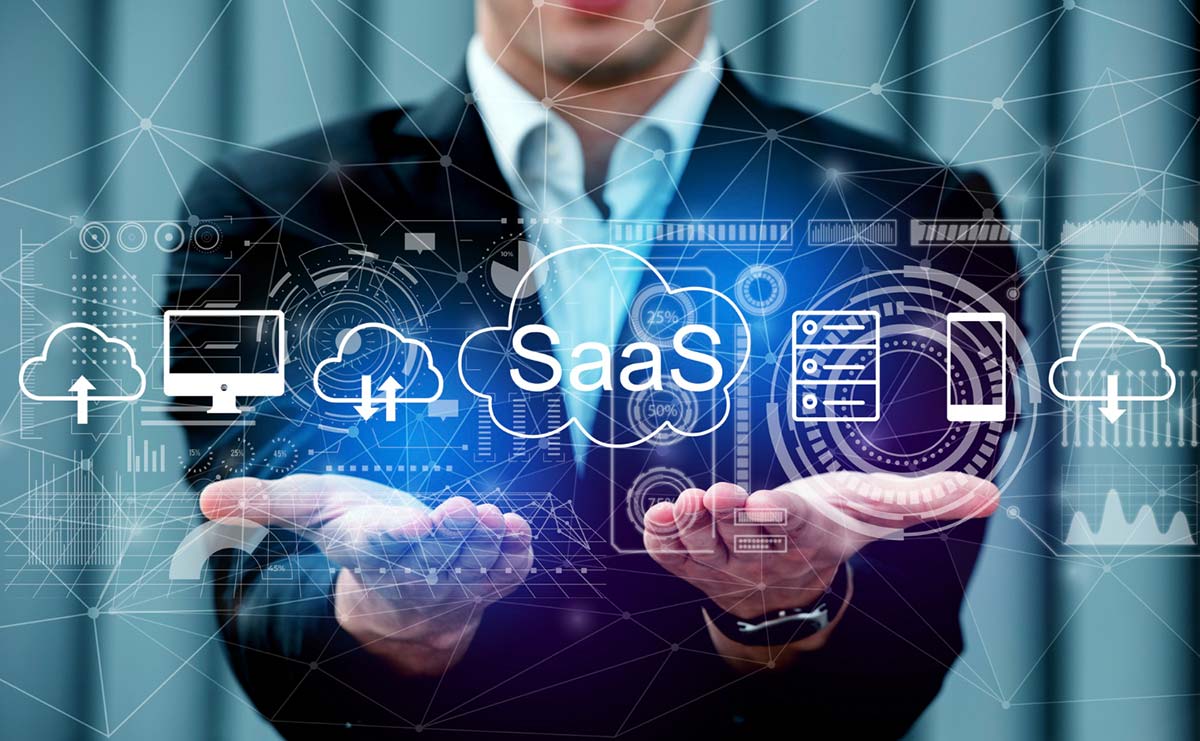Contents
An Ultimate Guide for Migrating On-Premise Legal Tech to Cloud-Based Legal Software
Nowadays, using on-premise legal tech systems is quite outdated, and law firms are changing their systems to cloud software for law firms as it brings more efficiency and a smoother workflow. Cloud-based legal software has many benefits including documentation properly and having access to data easier. So, it is not quite surprising to see that cloud-based law firm software is globally used.
Why Law Firms Should Consider Cloud-Based Legal Software
The legal industry has traditionally relied on on-premise systems, but the growing popularity of cloud-based legal software is transforming how law firms operate. Let’s examine the key reasons why cloud software for law firms is becoming a preferred choice.
I. Flexibility and Accessibility
Cloud-based legal software allows legal professionals to access files, documents, and case details from any location with an internet connection. This flexibility is especially valuable for hybrid or remote work environments, ensuring that lawyers can collaborate effectively without the constraints of traditional office setups. Solutions like RunSensible offer seamless access, allowing your team to stay connected with clients and handle cases efficiently even when away from the office.
II. Cost Efficiency of Cloud-Based Legal Software
Using cloud software for law firms helps cut down on expenses associated with maintaining physical servers and hardware. Cloud-based law firm software eliminates the need for costly IT infrastructure, reducing overhead costs and freeing up resources for other strategic investments. In addition, cloud solutions offer predictable monthly subscription fees, making it easier for firms to manage budgets without unexpected maintenance expenses.
III. Enhanced Security and Compliance
Security is a major concern for any legal practice, given the sensitive nature of client data. Cloud legal software comes with advanced security features, including encryption, regular updates, and compliance with industry regulations like GDPR, PIPEDA, and HIPAA. RunSensible, for instance, ensures that your data is safeguarded against breaches, offering built-in compliance tools to protect client confidentiality. This level of security helps law firms maintain trust and avoid costly data breaches.
By leveraging the benefits of cloud-based legal software, law firms can enhance productivity, reduce costs, and ensure data security—all critical aspects of modern legal practices.

Key Features of Cloud-Based Law Firm Software
Selecting the right cloud-based legal software requires careful consideration of its features. The following key aspects help ensure that cloud software for law firms delivers both efficiency and security, while also integrating seamlessly into your practice.
I. Secure Data Storage
One of the most critical features of cloud legal software is secure data storage. Unlike on-premise solutions, cloud-based systems offer encrypted storage, reducing the risk of unauthorized access or data breaches. With RunSensible, your firm can benefit from high-level encryption and continuous backups, safeguarding sensitive client information. Independent assessments by leading cybersecurity firms, such as Norton and McAfee, also highlight the importance of robust encryption standards for legal data protection.
II. Automated Updates and Maintenance
Cloud-based law firm software typically offers automated updates, ensuring that your firm always has the latest features and security patches. This eliminates the need for manual maintenance, reducing downtime and allowing your team to focus on client work. RunSensible cloud solution provides regular, automatic updates without interrupting daily operations, keeping your software up-to-date without any effort on your part. This streamlined approach helps firms avoid the costly disruptions associated with on-premise system upgrades.
III. Seamless Integration with Existing Tools
Modern law firms often use multiple software tools for case management, billing, and client communication. The best cloud software for law firms integrates seamlessly with existing applications like Microsoft 365, and Google Workspace, and legal research platforms such as Westlaw. RunSensible’s cloud-based legal software is designed to connect with these essential tools, offering a unified experience that enhances productivity across your entire practice.
By focusing on secure storage, automated updates, and seamless integrations, cloud-based legal software like RunSensible provides the features necessary to elevate your firm’s efficiency and client service.
Questions to Ask When Choosing Cloud Software for Law Firms
Selecting the right cloud software for law firms is a critical decision that requires thorough evaluation. By asking the right questions, you can ensure that the cloud-based legal software you choose aligns with your firm’s needs and provides a reliable and secure service. Here are the key considerations to guide your decision-making process.
I. How Secure Is the Cloud Legal Software?
Security should be a primary concern when evaluating cloud-based legal software. Law firms handle highly sensitive client information that must be protected from breaches and unauthorized access. The ideal solution, such as RunSensible, offers strong encryption, multi-factor authentication, and regular security audits to safeguard data. Assess whether the provider follows industry standards for data protection and complies with regulations like GDPR, PIPEDA, and HIPAA, ensuring that your firm remains compliant while using the software.
II. Does It Offer Reliable Customer Support?
Cloud-based law firm software should come with dependable customer support to assist your team in resolving issues promptly. Whether it is a technical glitch or a question about a specific feature, having access to responsive support can minimize downtime and keep your operations running smoothly. RunSensible’s support team is available to provide comprehensive assistance, ensuring that your firm can quickly resolve any problems and continue focusing on client service.
III. What Is the Data Backup and Recovery Plan?
A robust data backup and recovery plan is essential for any cloud-legal software. In the event of a system failure or data loss, your firm must be able to restore client files and documents swiftly to avoid disruptions. Ensure that the software provider has a clear backup strategy, including automated backups and quick data recovery processes. RunSensible’s cloud-based legal software includes reliable data backup solutions, helping your firm protect valuable information and maintain business continuity even in emergencies.
By carefully considering these questions, your firm can make an informed choice when selecting cloud software for law firms. Opting for a trusted provider like RunSensible ensures that you receive a secure, reliable, and efficient solution tailored to your practice’s needs.
Planning Your Migration to Cloud-Based Legal Software
Migrating from on-premise systems to cloud-based legal software is a significant move that requires careful planning. A well-executed transition can help your firm leverage the full potential of cloud software for law firms. Here are the steps to ensure a smooth migration process.
I. Involving Key Stakeholders
Successful migration to cloud legal software begins with involving the right stakeholders from the start. Partners, IT staff, and department heads must be engaged early in the process to provide input on specific needs and requirements. Their feedback helps identify the features necessary for an effective solution. RunSensible cloud-based law firm software includes comprehensive support during the transition, ensuring all stakeholders are informed and equipped for the change.
II. Creating a Data Migration Strategy
Data migration is one of the most critical aspects of moving to cloud software for law firms. A solid strategy includes a detailed plan for transferring client records, documents, and case files while minimizing risks. RunSensible assists law firms by providing tools and guidance for secure and efficient data transfer. It is essential to conduct a thorough data audit before the migration, identifying redundant or outdated files that can be excluded, which helps streamline the process and reduce the potential for errors.
III. Testing the Cloud-Based System Before Full Deployment
Before fully implementing cloud-based law firm software, it is crucial to test the system to ensure that it meets your firm’s needs and performs as expected. RunSensible offers a trial period and pilot testing phase, allowing your team to explore the features and resolve any issues before the official launch. Testing includes checking integration with existing tools, validating data accuracy, and assessing overall user experience. This step helps avoid disruptions and ensures a seamless transition for your firm.
By involving stakeholders, planning a robust data migration, and conducting thorough testing, your law firm can make a successful switch to cloud-based legal software. RunSensible provides comprehensive support throughout the process, making it easier for your firm to adopt new technology and enhance its overall operations.
Best Practices for a Successful Migration
A smooth transition to cloud-based legal software can help your firm maximize efficiency and improve client service. Following best practices during the migration process is essential for ensuring that cloud software for law firms delivers its full benefits. Below are the key strategies to consider.
I. Training Your Team on Cloud-Based Law Firm Software
Adopting new technology requires comprehensive training for all staff members who will use the software. Proper training ensures that your team understands the features of cloud-based law firm software and can use it effectively in daily operations. RunSensible offers tailored training sessions, user guides, and ongoing support to help your team master the new system quickly. This preparation reduces the learning curve and boosts productivity right from the start.
II. Monitoring and Addressing Initial Challenges
The early stages of using cloud legal software may present minor challenges, such as adapting to new workflows or resolving integration issues. Monitoring system performance and user feedback during the initial phase is crucial. RunSensible provides dedicated support and troubleshooting to address any issues that arise, helping your firm resolve problems swiftly and minimize disruptions. Proactively identifying and fixing these challenges helps your team adapt smoothly to the new software.
III. Ensuring Continuous Improvement and Optimization
Migration to cloud-based legal software is not a one-time event; it requires ongoing evaluation and optimization. Regularly reviewing your firm’s needs and software performance allows you to make necessary adjustments and fully leverage the capabilities of cloud software for law firms. RunSensible offers continuous updates and new feature rollouts, ensuring that your system remains current and capable of meeting evolving demands. By maintaining a focus on improvement, your firm can enhance efficiency and stay ahead of industry trends.
By following these best practices—investing in team training, monitoring early-stage issues, and committing to continuous optimization—your law firm can achieve a successful migration to cloud-based legal software. RunSensible supports you at every stage of the process, helping your firm unlock the full potential of cloud technology.
The Future is Cloud-Based: Embrace Cloud Legal Software
The shift to cloud software for law firms marks a new era of efficiency, security, and flexibility. Cloud-based legal software provides the tools needed to streamline workflows, reduce costs, and enhance client service. By adopting a comprehensive cloud solution like RunSensible, law firms can modernize their operations and gain a competitive edge, leveraging the benefits of secure data storage, automated updates, and seamless integrations.
With cloud-based law firm software, legal practices are better equipped to adapt to changing market demands and evolving client expectations. The ability to access information from anywhere and maintain compliance with industry standards makes cloud legal software a valuable asset for firms of all sizes. As technology continues to advance, embracing cloud-based solutions is a strategic move that ensures your firm remains agile and prepared for the future.
FAQs
1. Why should my firm switch to cloud-based legal software instead of staying with on-premise systems?
Cloud-based legal software offers greater flexibility, lower maintenance costs, and enhanced security features compared to traditional on-premise systems. It allows your team to access files securely from anywhere and eliminates the need for expensive hardware upgrades.
2. Is cloud software for law firms secure enough to handle sensitive client data?
Yes, top cloud legal software like RunSensible uses advanced encryption, multi-factor authentication, and regular security updates to protect sensitive information. These features ensure compliance with industry regulations and keep client data safe from breaches.
3. Will migrating to cloud-based law firm software disrupt my current operations?
A well-planned migration process, like the one supported by RunSensible, minimizes disruptions. With proper data backup, testing, and team training, your firm can transition smoothly to the new system while maintaining productivity.
Disclaimer: The content provided on this blog is for informational purposes only and does not constitute legal, financial, or professional advice.







